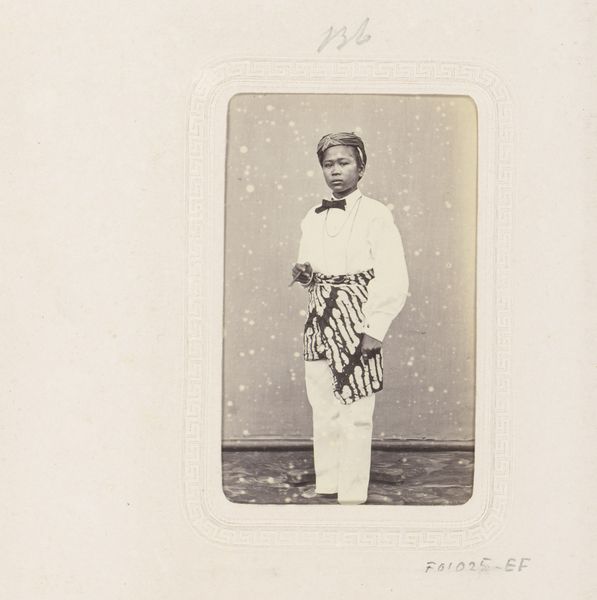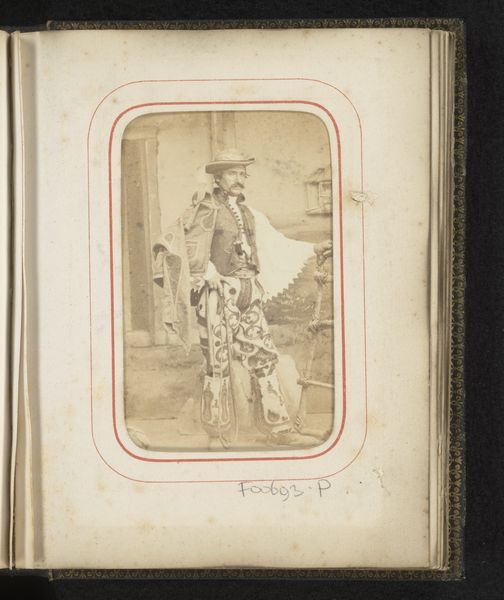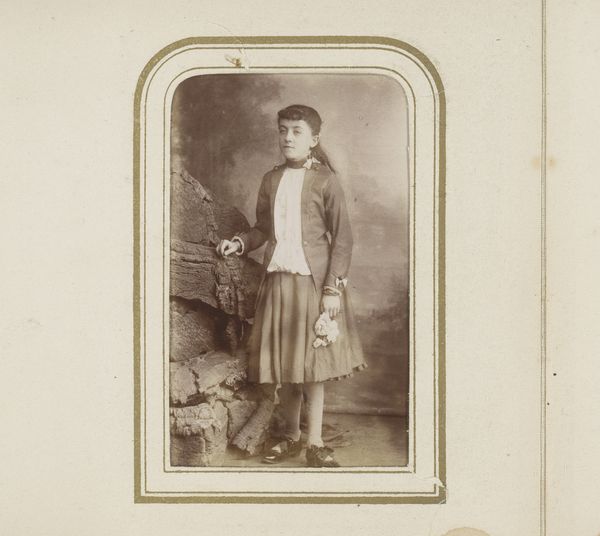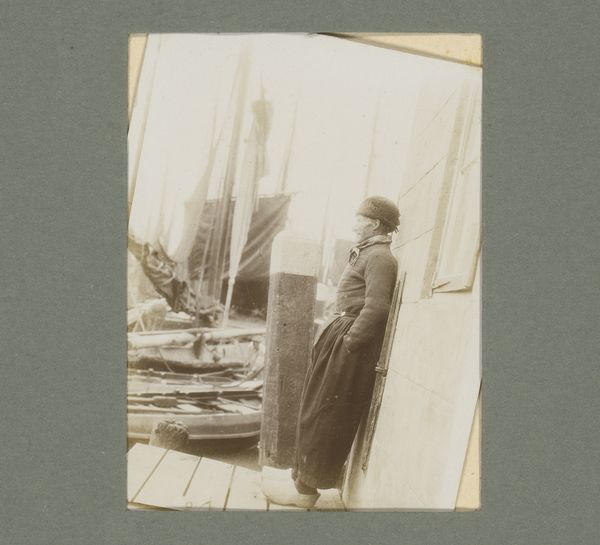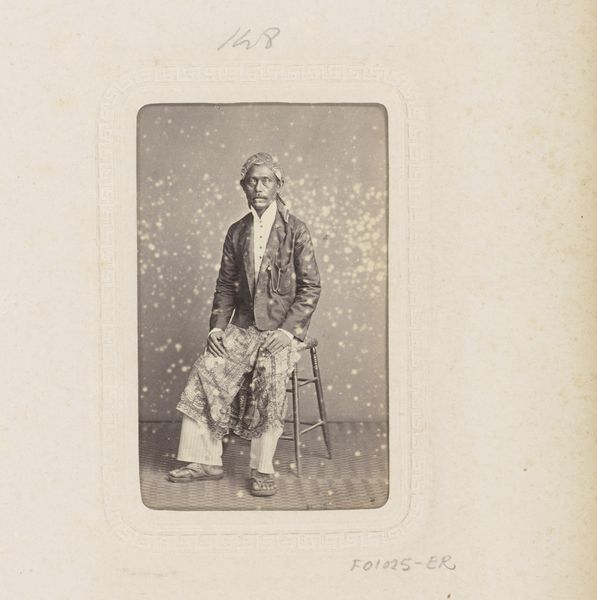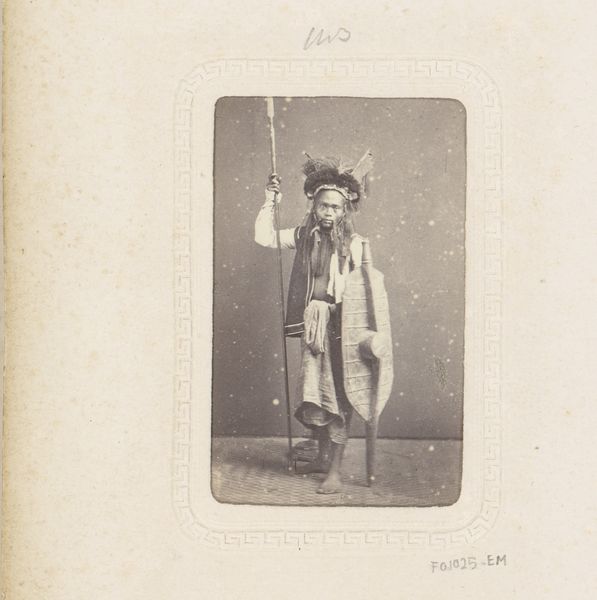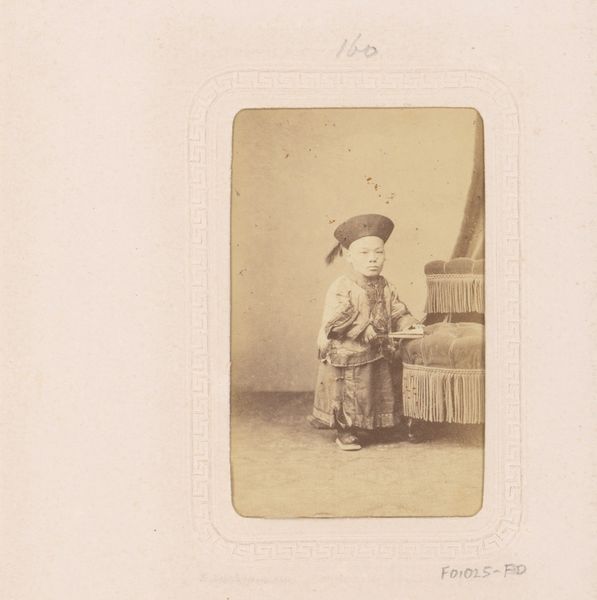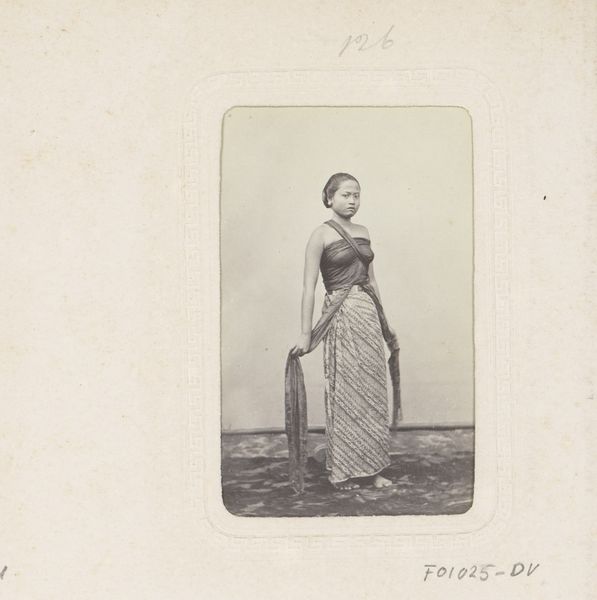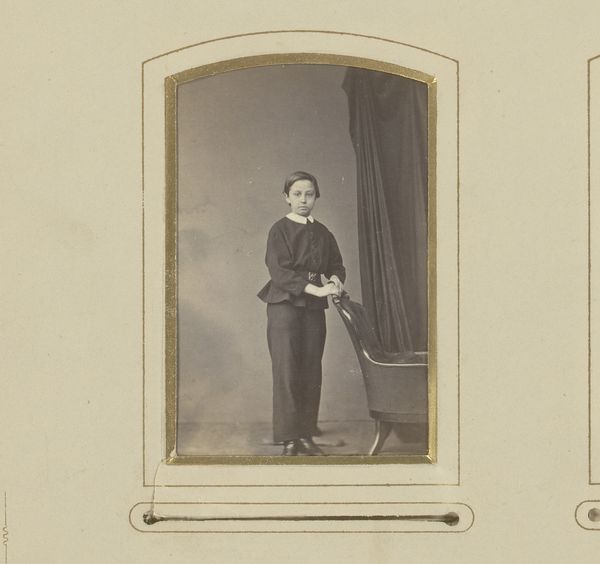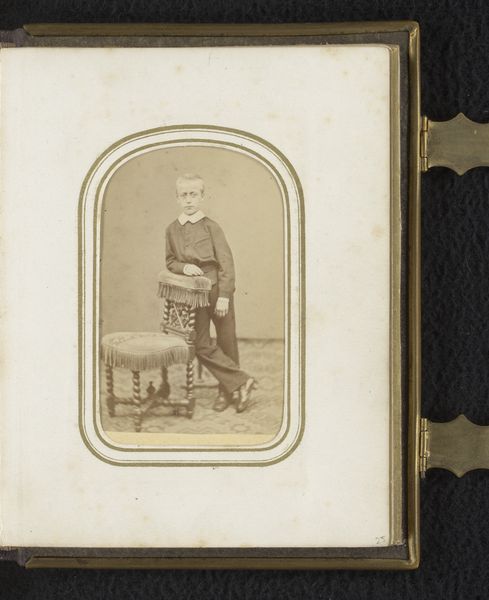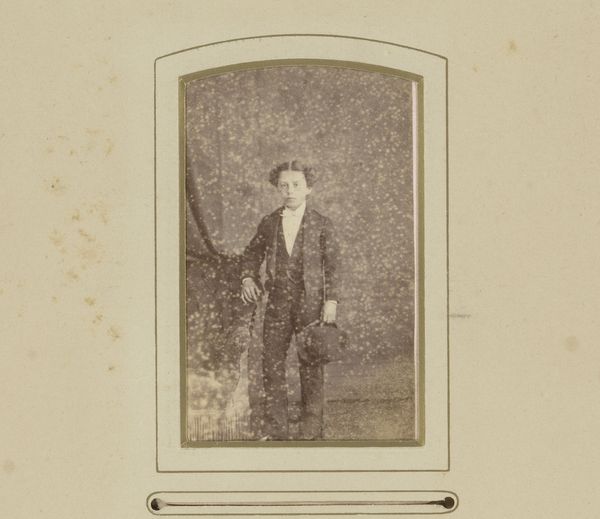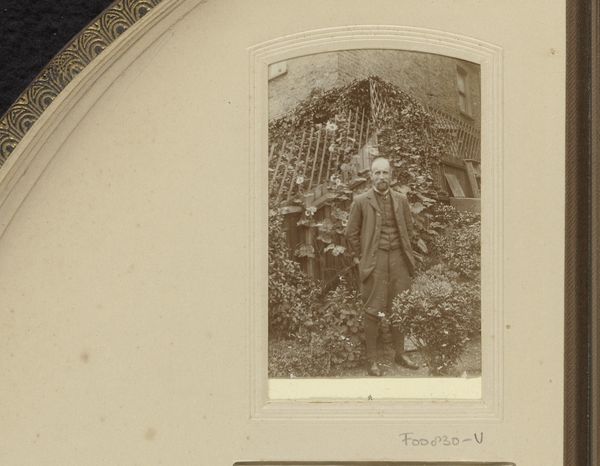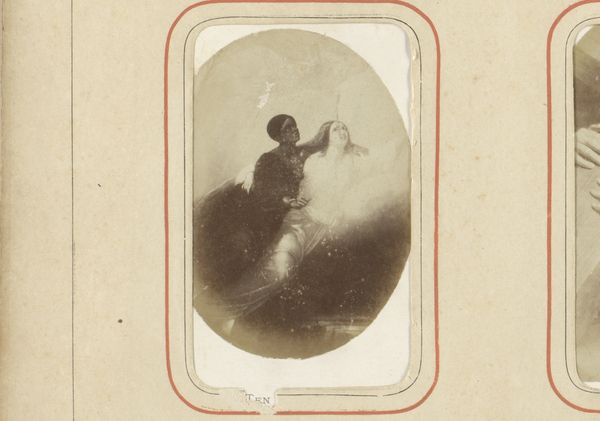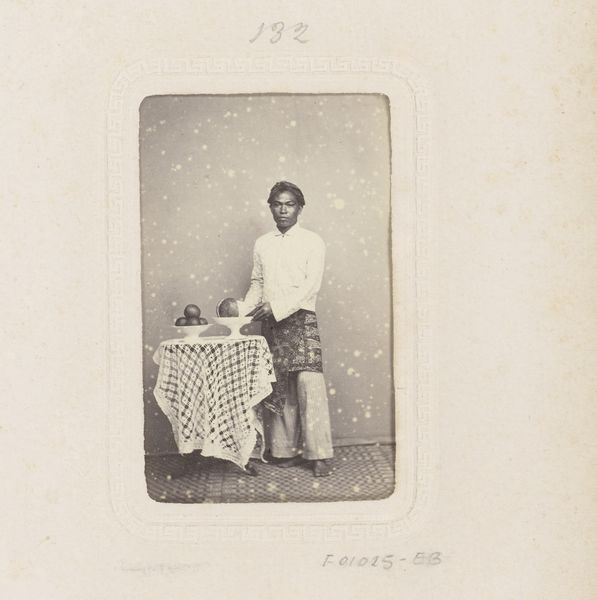
photography, albumen-print
#
portrait
#
photo of handprinted image
#
african-art
#
aged paper
#
toned paper
#
light pencil work
#
vintage
#
photo restoration
#
light coloured
#
indigenism
#
archive photography
#
photography
#
historical photography
#
old-timey
#
orientalism
#
albumen-print
Dimensions: height 85 mm, height 52 mm
Copyright: Rijks Museum: Open Domain
Curator: Welcome. We are standing before a remarkable albumen print from the period of 1857 to 1880 titled "Portret van een Indonesische plantendrager," made by Woodbury & Page. Editor: The aged paper gives it an undeniably melancholic aura, almost sepia-toned despite being monochrome. The composition feels very deliberately arranged; the subject centered, flanked by identical baskets… it has a strange symmetry to it. Curator: The composition is indeed highly ordered, lending a sense of formal ethnographic documentation, quite characteristic of that period. Look at the subtle gradation of tones within the print, the soft focus enhancing the texture of his garment and the plants he carries. Editor: Absolutely, but I can’t ignore the implicit power dynamics at play. A studio setting, controlled lighting, the man posed for the Western gaze. These were images used to codify and disseminate ideas about colonized populations, reducing individuals to types. Curator: True, and it's vital we address those issues. However, from a purely visual perspective, observe how the photographer utilized the props – the balanced baskets – not only as a definer of occupation, but also for aesthetic balance. Editor: Fair point. And the light, too. The way it hits the man's torso contrasts against the muted backdrop; it creates a focal point. What is less direct is understanding the actual labour and the lives involved in plant gathering—what's framed here is primarily about visual documentation from an occidental viewpoint. Curator: Consider the object itself: albumen prints required a delicate balance of chemical process and artistry. Also consider how this image circulates, in albums, personal collections; a controlled circulation perpetuating an intended narrative. Editor: The stark contrasts force us to reconcile its aesthetic appeal with its problematic origins. I can't unsee that tension. Curator: Perhaps that’s precisely where the value of studying this image lies; unpacking its complexities in the confluence of form and historical narrative. Editor: Indeed. Leaving us to think on the power and politics inherent in even the most seemingly simple photographic portrait.
Comments
No comments
Be the first to comment and join the conversation on the ultimate creative platform.
